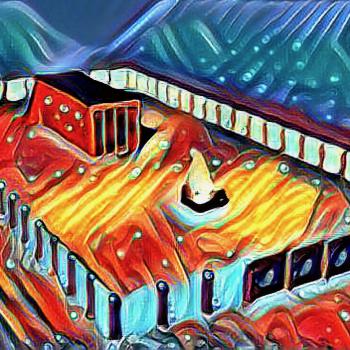This is part of a short series exploring what three different Early Church Fathers teach about The Rich Young Ruler.[1] Within this story we see truths unfold about the ancient virtue of simplicity. Origen takes time to examine the allegiances of the Rich Young Ruler in a way that could probably challenge any one of us, about our excessive way of life.
The previous post is: Simplicity: Clement’s stark conclusions about the Rich Young Ruler
on the allegiances of the Rich Young Ruler
i. Origen succeeds Clement of Alexandria
Origen is the successor to Clement at Alexandria’s church and over the school there. He lives until about 254 A.D. He is one of those bridgers who is in the era when Latin Theology begins as well.
Origen echoes Clement. He states that rich men need to resist the domineering passions of wealth. He says this:
“It is hard for the rich man to enter into the kingdom of God;” [Matthew 19.23] whether we take the word “rich” in its simplest sense, as referring to the man whose mind is distracted by his wealth, and, as it were, entangled with thorns, so that he brings forth no spiritual fruit; or whether it is the man who is rich in the sense of abounding in false notions, of whom it is written in the Proverbs, “Better is the poor man who is just, than the rich man who is false” [Proverbs 28.6].[2]
So what’s Origen unpacking here? It’s kind of fun. Origen and the Church Fathers are very careful in their interpretation of this passage.
They are not tearing apart the Rich Man. They are not condemning rich men. They’re not condemning possessions.
They are focusing in on emotional attachments to riches.
ii. Riches can entangle us and become attachments
Origen says we can allow riches to entangle our mind like thorns. As you read these writers, you know they are referring to certain parts of Scripture. Their words are laced with Scripture. This is a reference to Luke 8.14. It’s the parable of the seed and the sower. There are different places where the sower sows seed, and those places reflect the condition of our heart.
The seed that fell among thorns stands for those who hear, but as they go on their way they are choked by life’s worries, riches and pleasures, and they do not mature.[3]
Again, it’s a reference to a very familiar passage where the Gospel falls on various soils, representing our hearts.
There are thorny hearts. There are hearts that are difficult to plant seed in because the cares of this world begin to choke out that seed. As you pour the Gospel into certain people, you’ll find that it’s just one worry after the other, week after week.
Among those cares that choke out the seed of the Gospel, riches are included. Riches have the ability to choke out what the Gospel is trying to produce in our lives. We have to be careful in our management that we are stewards, not only of our resources, but stewards of the Word.
It’s not our material goods, but it’s the inner attachment of our heart and soul.
iii. A false self emerges
Origen goes on to quote Proverbs 28.6. His translation says:
Better is a poor man who is just
than the rich man who is false.
The New International Version reads:
Better a poor man whose walk is blameless
than a rich man whose ways are perverse.
Once again, it doesn’t have to be the rich. I’ve seen all of the fallacies of the love of money in those who don’t have much money. However, there is a pretense, an image.
We can become ensnared by our riches and our way of life, and allow a false self to emerge. This is a self that doesn’t really include the working of the Holy Spirit, the way God moves through the Gifts of the Spirit and the Fruit of the Spirit.
iv. Hidden allegiances
Think about the Rich Young Ruler. In accordance with the Jewish Law, the Rich Man seems to be doing everything right. He’s obeying all of the Ten Commandments. He’s a viable part of the community. There doesn’t seem to be anything wrong with what he’s doing.
That’s why the Disciples are baffled by the interchange between Jesus and the Rich Young Ruler.
Underneath the appearance of everything that he’s doing right, his allegiance is to money rather than to God. Do you see the false self? Here he is serving in the community, but underneath it all he can’t part with earthly wealth.
That is precisely the danger Origen is pointing out, whether it’s money, or whether it’s any other excess in your life.
notes:
[1] As previously published: Jared Ingle, “Simplicity and the Rich Young Ruler.”Simplicity: Clement’s stark conclusions about the Rich Young Ruler
[2] Origen, “Against Celsus.vii.xxiii,” in Fathers of the Third Century: Tertullian, Part Fourth; Minucius Felix; Commodian; Origen, Parts First and Second, vol. 4 of The Ante-Nicene Fathers, ed. A. Cleveland Coxe (Grand Rapids, MI: Wm. B. Eerdmans, 1885), http://www.ccel.org/ccel/schaff/anf04.vi.ix.vii.xxiii.html (accessed November 6, 2014). [3] Scripture quotations are from the New International Version, 1999.












